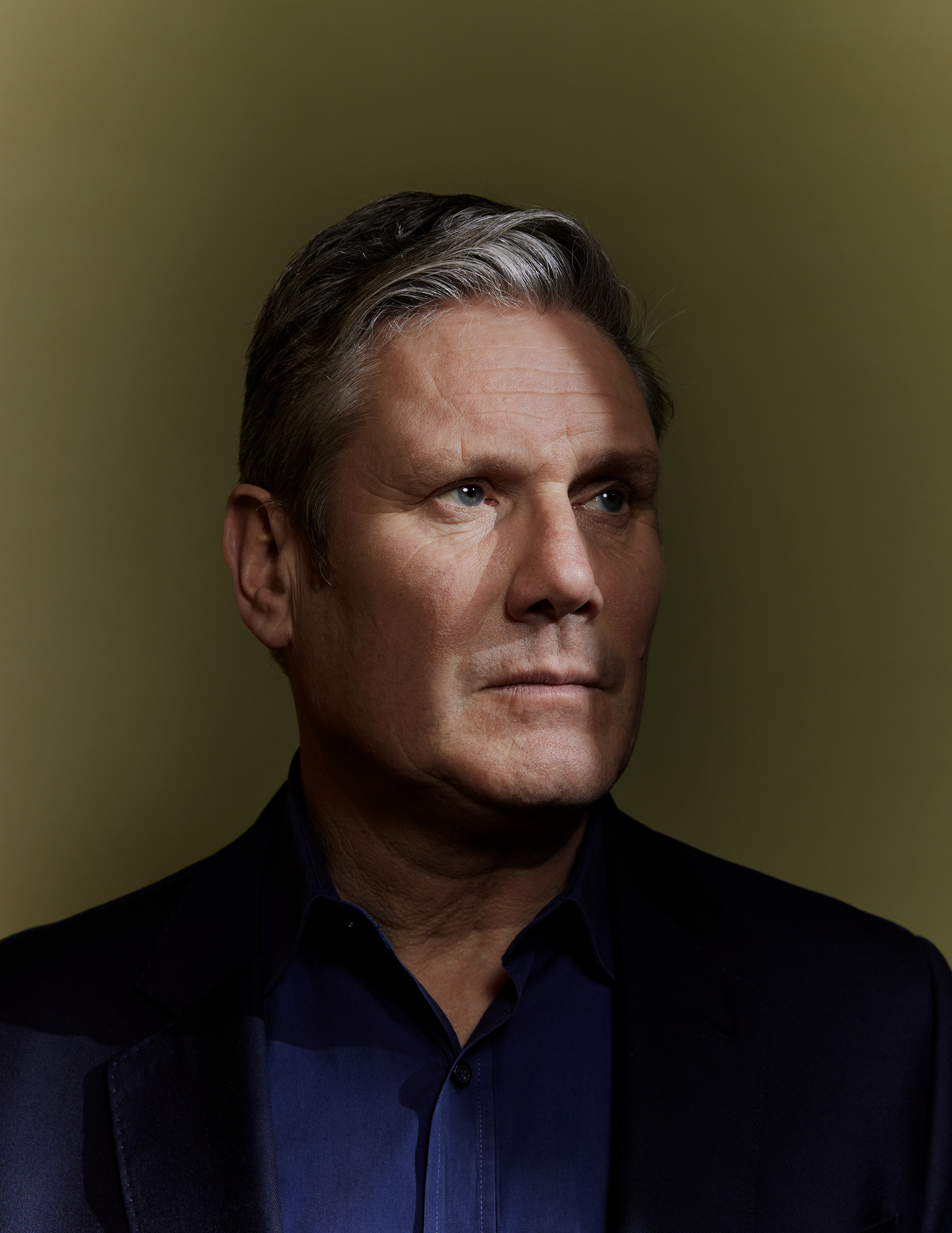When Keir Starmer’s namesake, the Scottish politician and trade unionist Keir Hardie, founded the British Labour Party in 1900, it wasn’t to be a party of protest. “We were formed to be a party of government,” says Starmer, the man seen by many as the U.K.’s Prime-Minister-in-waiting, as we walk through the echoey halls of the Palace of Westminster, the seat of British politics. “The Labour Party only came into existence in order to form Labour governments and bring about change. We must never, ever lose sight of that.”
Yet Labour has been stuck in the shadows ever since the Conservatives took power in 2010. Under Labour’s erstwhile leader, the left-wing Jeremy Corbyn, it resembled less a party of effective opposition than it did a radical protest movement. Starmer, who has served as Labour leader since 2020, is determined to change that. “Restoring the Labour Party to a party that can serve the country has been a driving part of what I’ve been trying to do in the last three years,” he says.
Starmer’s revival of Labour to a more centrist party ready to take office coincides with a period of seemingly endless malaise in Britain. Under the Tories, as the Conservatives are known, the country has lurched from one crisis to another: from the divisive 2016 Brexit referendum and the yearslong turmoil of leaving the E.U., to the COVID-19 pandemic in which the U.K. suffered the worst per capita death toll in Western Europe. When the pandemic began to subside in early 2022, Russia’s full-scale invasion of Ukraine threw Britain and the rest of Europe into yet another crisis. Then the U.K. was hit by multiple blows in the span of just a few months later that year: the downfall of Boris Johnson following a series of scandals that engulfed his government on July 7; the death of the country’s longest-reigning monarch, Queen Elizabeth II, on Sept. 8; the crashing of the British pound two weeks later, after then Prime Minister Liz Truss unveiled a package of unfunded tax cuts for the superrich; and, finally, the collapse of yet another Conservative government on Oct. 20. The U.K.’s latest leader, Rishi Sunak, emerged as an unelected replacement to Truss days later, becoming the fifth Prime Minister in just over six years.
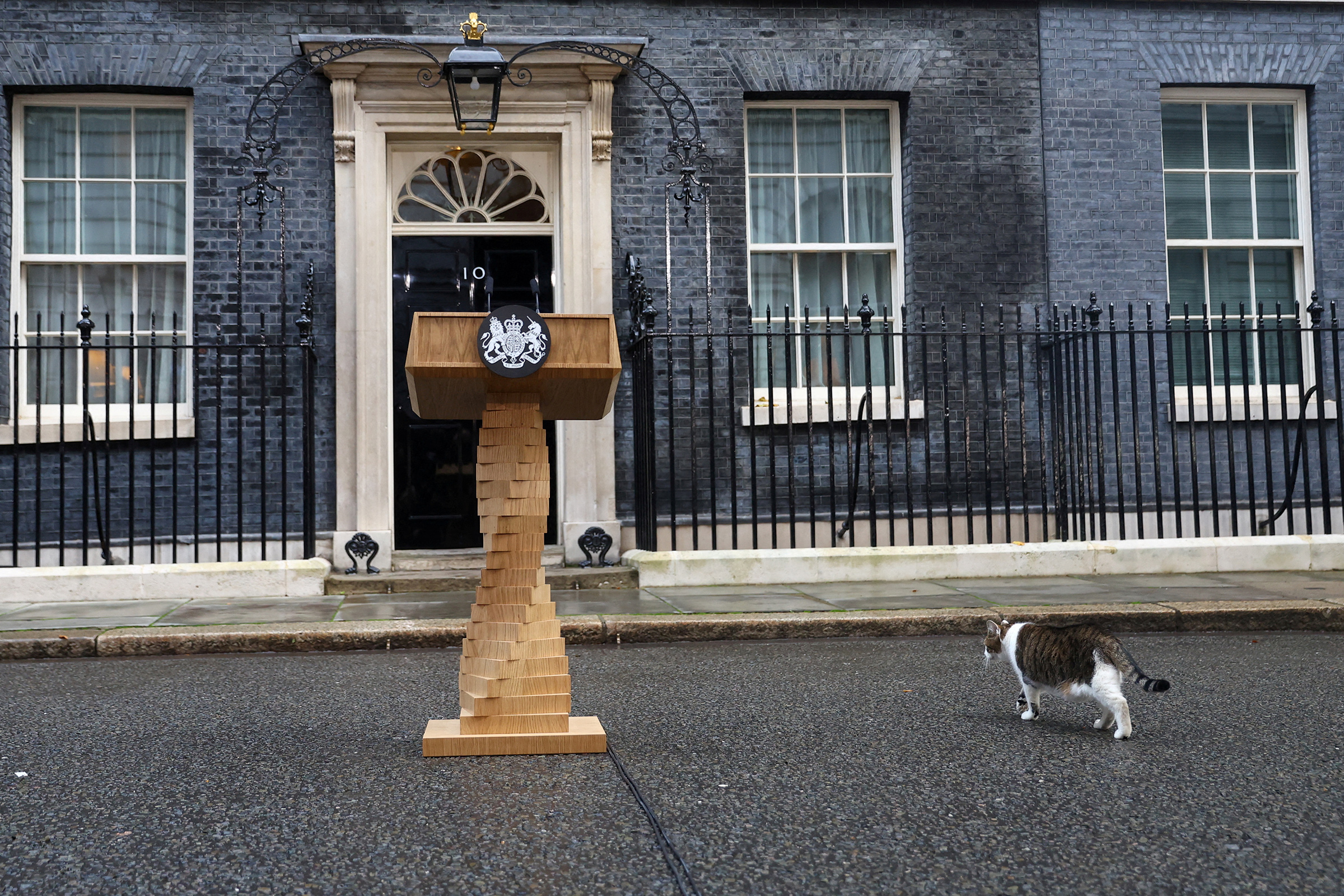
By the time Starmer sits down with TIME in late March—his first major interview with foreign media—things haven’t exactly improved. The U.K., currently projected to be the G-7’s worst economic performer this year, is on track to become poorer than post-Communist Poland by the end of the decade. Inflation, which reached a 41-year high in October, has barely eased. The worst cost-of-living crisis in a generation has led to crippling labor strikes, prompting hundreds of thousands of workers—among them doctors, nurses, train drivers, and teachers—to walk out in demand of better pay in the past year. The country’s beloved National Health Service, which has seen emergency wait times and care backlogs skyrocket, is bursting at the seams. Life in the U.K. today has become less hopeful, more expensive, and, increasingly, shorter.
It is against this bleak backdrop that virtually everyone—from political analysts to pollsters and even most voters—expects that Starmer will become the U.K.’s 58th Prime Minister when the country holds its next general election by January 2025. (Some reports suggest Sunak may call a vote as early as fall 2024.) The Labour Party has consistently commanded a double-digit lead in opinion polls since late 2022. During local elections in England earlier this month, Labour delivered a devastating blow to the Conservatives, overtaking them as the largest party in local government for the first time in more than two decades.
Starmer talks a lot about the need for change—the word comes up nearly two dozen times during our half-hour conversation—and he says pursuing “mission-driven” change that is dictated less by ideology and more by practicality is his philosophy. “Working people want change,” says the 60-year-old former prosecutor. “They don’t want politicians talking about it. They don’t want false promises. They want it fixed. It’s a very simple thing for most families.”
In an election that is largely seen as Labour’s to lose, Starmer says he can leave nothing to chance. He is taking notes from his center-left peers who have recently won power in the U.S., Germany, and Australia. But with victory looking all but assured, an oft-repeated concern has dogged him: What exactly is he promising the British people?
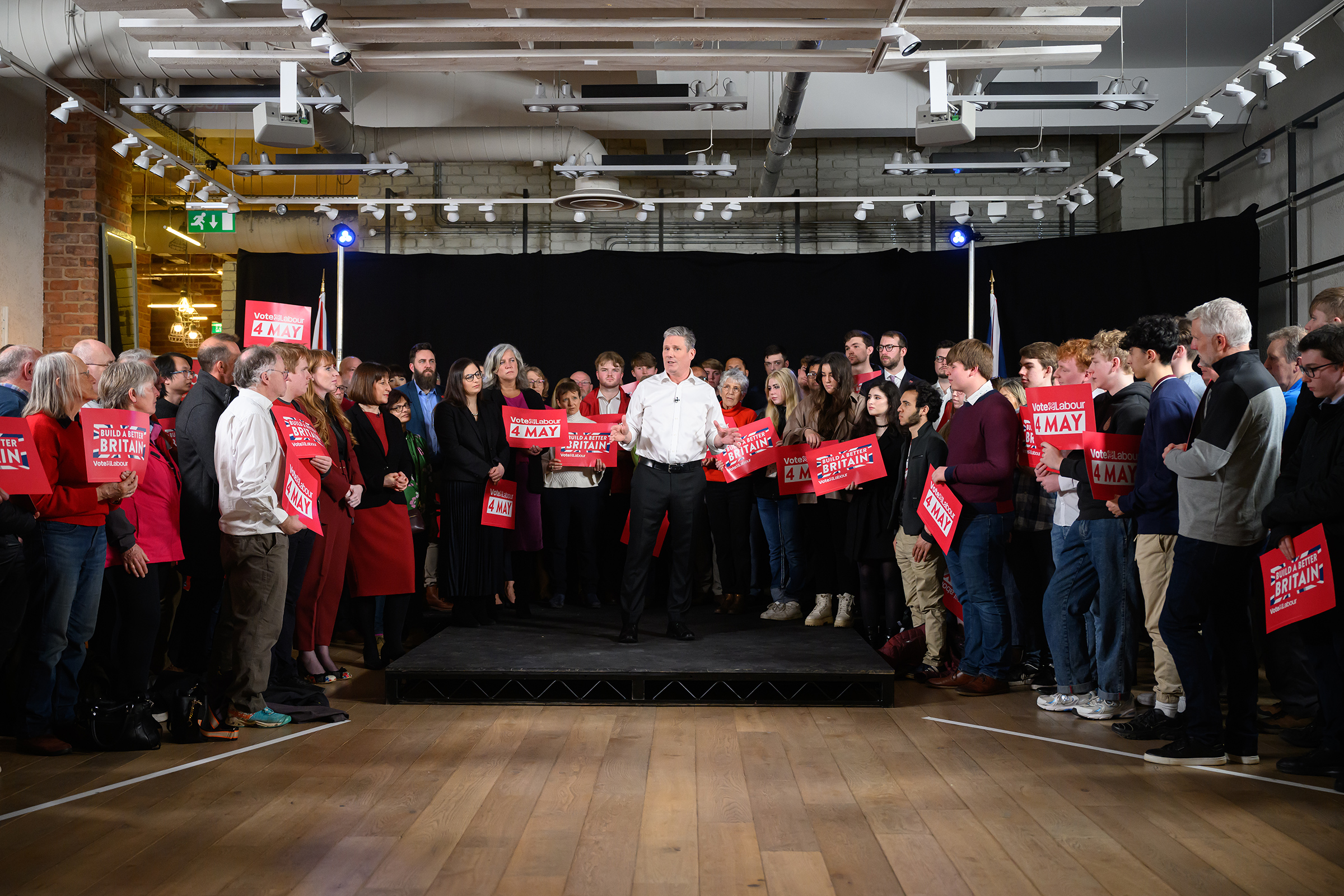
It’s easy to assume that Starmer, with his tailored suits and affluent North London residence, belongs to the elite ranks of past U.K. leaders. He speaks with the conviction of a prosecutor: authoritative, scrupulous, argumentative. And though he prefers not to use the honorific, he’s technically a “Sir,” after being recognized in 2014 for his “services to law and criminal justice” as the former head of the Crown Prosecution Service (CPS), the public prosecutor for England and Wales.
But Starmer’s backstory is modest. Born on Sept. 2, 1962, to a Labour-supporting family, Starmer grew up in Oxted, a commuter town roughly 20 miles south of London. His mother was an NHS nurse, while his father was a toolmaker in a factory. Unlike much of Britain’s ruling class, Starmer was not a product of private boarding schools such as Eton (which claims 20 U.K. Prime Ministers among its alumni, including Johnson) or Winchester (Sunak’s alma mater). He attended a selective grammar school—tuition-free—before gaining admission to Leeds University to study law, becoming the first person in his family to go to university. A postgraduate degree from Oxford University followed.
“I can’t really emphasize enough for my parents how big a step it was that their son had become a lawyer,” Starmer says, with emphasis. The idea that he could one day end up in the U.K. Parliament, let alone the Prime Minister’s residence at 10 Downing Street, was even more inconceivable. “There was something in the back of my mind that simply said, ‘People like you aren’t MPs, Keir,’” Starmer says. “In a sense, my journey is evidence that people from my background actually can go on and do really important things.”
Starmer has told a variation of this story in countless interviews. It’s part of his pitch that, unlike many of the country’s recent leaders—among them David Cameron and Johnson (both products of Britain’s upper class and members of Oxford University’s elite male Bullingdon Club) and Sunak (whose reported $837 million net worth makes him the richest-ever occupant of Downing Street)—he understands what ordinary working people go through.

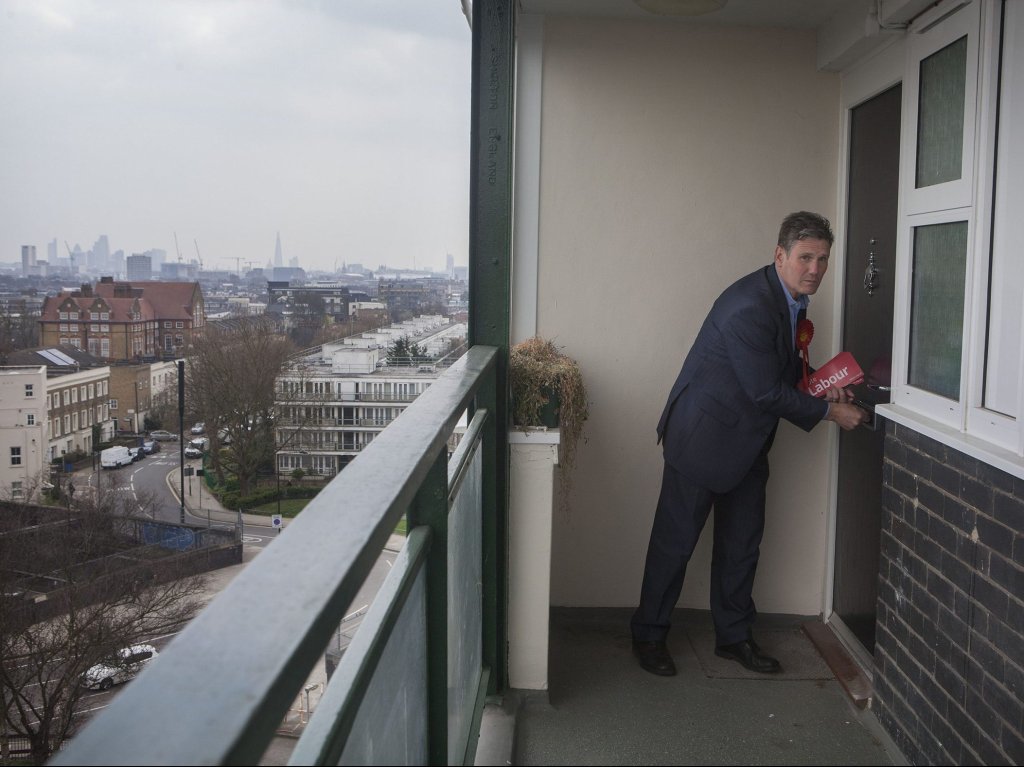
While Starmer’s relatively modest background should breed familiarity with voters, polling suggests few Britons know who he is or what he stands for. That’s perhaps because he came to politics later in life. The bulk of his career was spent as a human-rights lawyer, during which time he helped abolish the death penalty in the Caribbean and parts of Africa; assisted Greenpeace campaigners against McDonald’s in the so-called McLibel case, the longest trial in English legal history; and vocally advocated against the Iraq War on the grounds that it was illegal under international law. He later went on to advise the Northern Ireland Policing Board on developing a new, more diverse police force as part of the Good Friday Agreement—which brought an end to decades of sectarian conflict between Protestants and Catholics—before ultimately becoming head of the CPS in 2008.
By the time Starmer entered Parliament in 2015, he was 52. Four years later—a period in which Starmer quickly rose through the party ranks to become one of the few more moderate figures among Corbyn’s team of ministers, or shadow cabinet—the Labour Party suffered its greatest electoral defeat since 1935. The loss ended the reign of perhaps the most left-wing leader Labour had ever seen and presented an opening for Starmer.
Starmer’s renowned work ethic was the foundation for that rise. He always seems to have a pen in hand, whether it’s speaking on a panel at the World Economic Forum in Davos, presiding over a roundtable discussion with business leaders in London’s financial district, trading barbs with Sunak in the House of Commons, or even during our conversation. Among Westminster watchers, he is widely seen as competent, managerial, and a bit of a technocrat. “You could call him a progressive problem solver,” says Steve Richards, a British political commentator and author of The Prime Ministers: Reflections on Leadership From Wilson to Johnson. “A personification of stability at a time of chaos.”
But he can also be ruthless. Starmer quickly set about disassociating the party from Corbyn—a process that involved purging many of the Corbyn-era policies he himself campaigned on during his leadership bid (like abolishing university tuition fees) and, ultimately, Corbyn himself. Starmer made the decision to suspend his former boss from the party in 2020 after Corbyn appeared to deflect responsibility for his handling of antisemitism allegations within the party. In March, Starmer confirmed that Corbyn wouldn’t be permitted to stand as a Labour candidate in the next election.
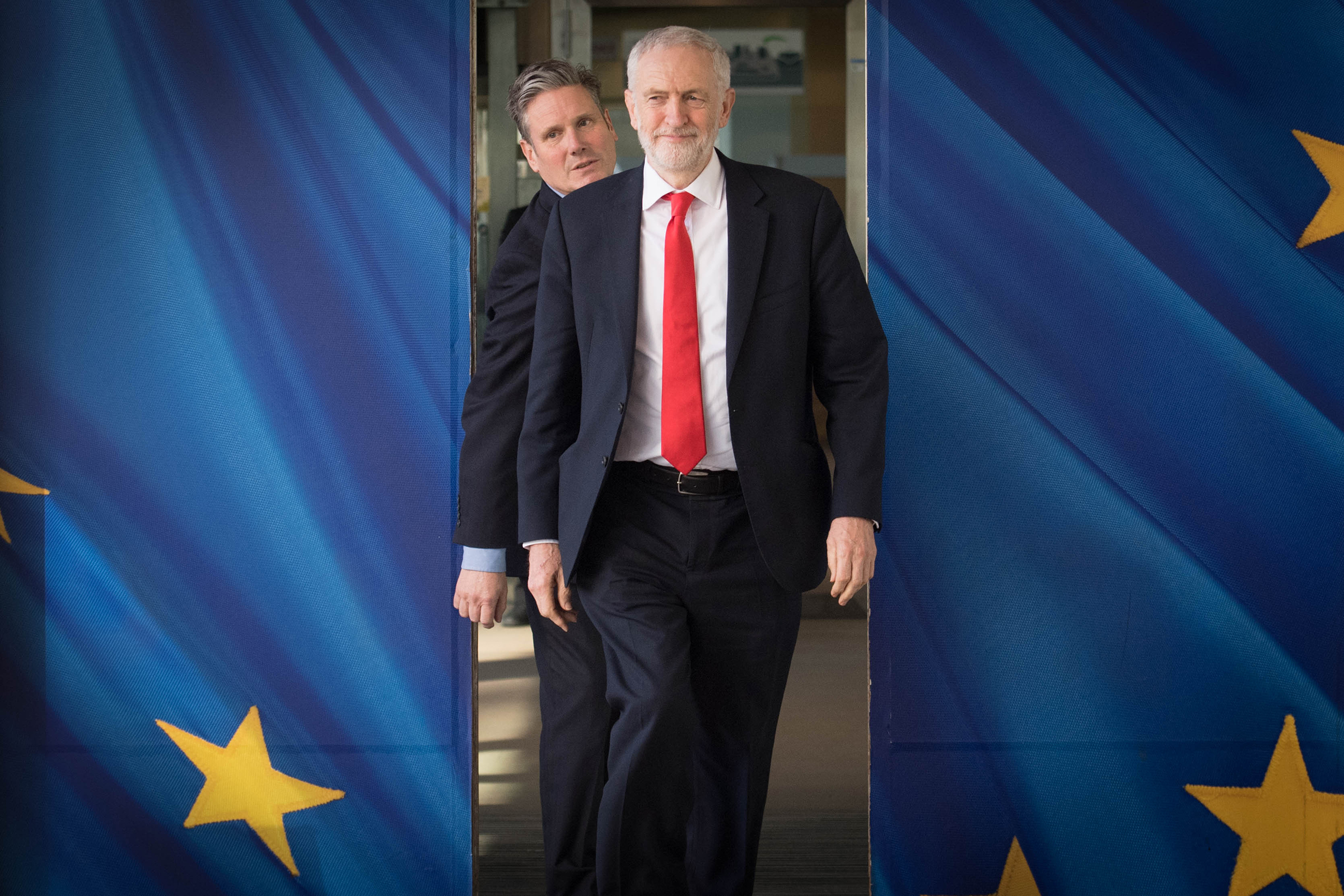
Under Starmer, Labour’s policies for nationalizing public utilities have been sidelined by pledges to deliver the highest sustained economic growth in the G-7. Starmer has positioned Labour as the party of business, inviting corporate leaders to weigh in on its economic plans. On foreign policy, the party has also shifted to the mainstream, positioning itself as avowedly pro-NATO and Atlanticist. (“We know that the U.S. is our No. 1 important ally,” Starmer says.) Two former moderate lawmakers who quit Labour under Corbyn have returned. One of them, Mike Gapes, tells TIME that under Starmer, the British public “can trust the Labour Party again. That’s how I feel.”
A particularly symbolic shift came during Labour’s annual conference last year when, in a tribute to the late Queen Elizabeth, attendees sang the national anthem. To observers, it was an unprecedented move that would have been anathema during the Corbyn years. For Starmer, it was the clearest signal he could make that, under his leadership, Labour had entered a new, more patriotic era.
As Starmer sees it, Labour needed a sharp break from Corbyn after its electoral decimation in 2019. “If we simply appeal to the same people who voted for us last time or to our party members, we’ll lose the next election—and that’s the blunt truth of it,” he says. But not everyone has welcomed this shift. Under Starmer, Labour’s leftist flank has been “completely marginalized,” says Matt Zarb-Cousin, a former Corbyn spokesperson who has since left Labour for the Green Party. Without their support, he adds, Starmer wouldn’t have won the leadership contest. “I don’t know what he stands for,” says Zarb-Cousin. “I don’t think he really stands for anything.”
This criticism has dogged Starmer since he became leader. Unlike his predecessor, he doesn’t speak with the verve of an ideologue. When pressed to define what “Starmerism” is, he doesn’t provide much detail—fueling criticism that he lacks a political vision. “Some people think that passion is only manifested by shouting and screaming,” Starmer insists. “For me, the passion and determination to change the country for the better runs very, very deep. And I think once people understand that, then they’ve got a much better sense of who I am.”
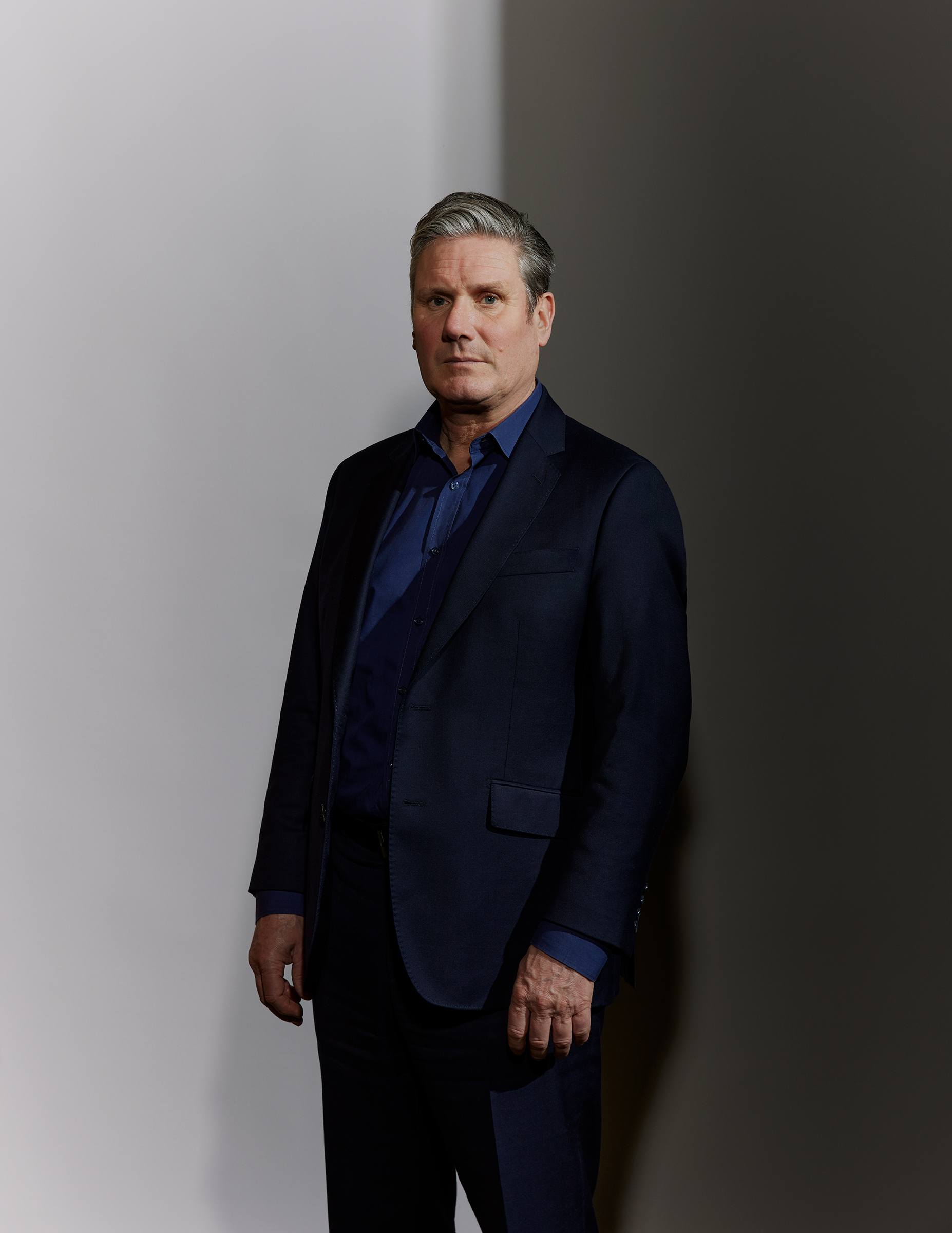
Those close to him say that, outside of politics, Starmer is personable, gregarious, and has a wry sense of humor. He is also passionate about indie pop and Arsenal FC. While his Friday evenings are spent with his family (he has a 14-year-old son and a 12-year-old daughter with his wife Victoria, a former lawyer who now works in occupational health for the NHS), his Sunday mornings are dedicated to his local soccer league. A longtime teammate says that Starmer, who plays midfield, acts as the manager of the team, from booking the pitches to picking the squads. Will he be able to keep up with the matches if he gets into Downing Street? “I really, really hope so,” Starmer says. “I haven’t quite worked out how, but it’s an important part of me.”
And Starmer and his allies both within and outside politics say that his reputation as a technocrat and a fixer, rather than an ideologue, is exactly what the U.K. needs—much like Joe Biden in the U.S., Olaf Scholz in Germany, and, if successful, presidential contender Kemal Kılıçdaroğlu in Turkey. “He is a much more serious version of a politician than we’ve often seen in the past,” says Gavin Millar, a former colleague and longtime friend of Starmer’s. “That gets confused with him being boring or distant, but [he’s] not—it’s just the way he does the job. At the place we’ve arrived at in our democracy at this point, it really is time for somebody to govern the country as Prime Minister who is of that sort. That’s what we need.”
In preparation for government, Starmer has taken advice from Labour’s last two living Prime Ministers, Tony Blair and Gordon Brown. But he is also looking to the Biden Administration. “We’ve got a lot to learn internationally as a Labour Party, so we study intensely the U.S. and, particularly, the journey of Biden into office, because [the Democrats are] our sister party,” Starmer says. “I’m absolutely determined that at the next election our campaign will be world class, not least because we are learning from all of those that have won recently.”
Biden presents an interesting case study for Starmer. Both leaders come from modest backgrounds, and both are seen in their respective countries as more centrist correctives to years of populism. But there is one key difference. Biden secured victory in 2020 in large part on the basis of not being his opponent, the polarizing and inflammatory Donald Trump. (He may yet secure re-election on that same basis.) In Sunak, Starmer faces a more staid opponent—one who isn’t quite as unpopular as his Tory predecessors (though that’s a low bar), and who isn’t stylistically all that different from Starmer.
“Sunak and Starmer are mirror images of each other,” says Anand Menon, the director of the U.K. in a Changing Europe think tank in London. “There’s a technocratic feel about them. Neither of them feels viscerally political or able to connect with what voters are really interested in.”
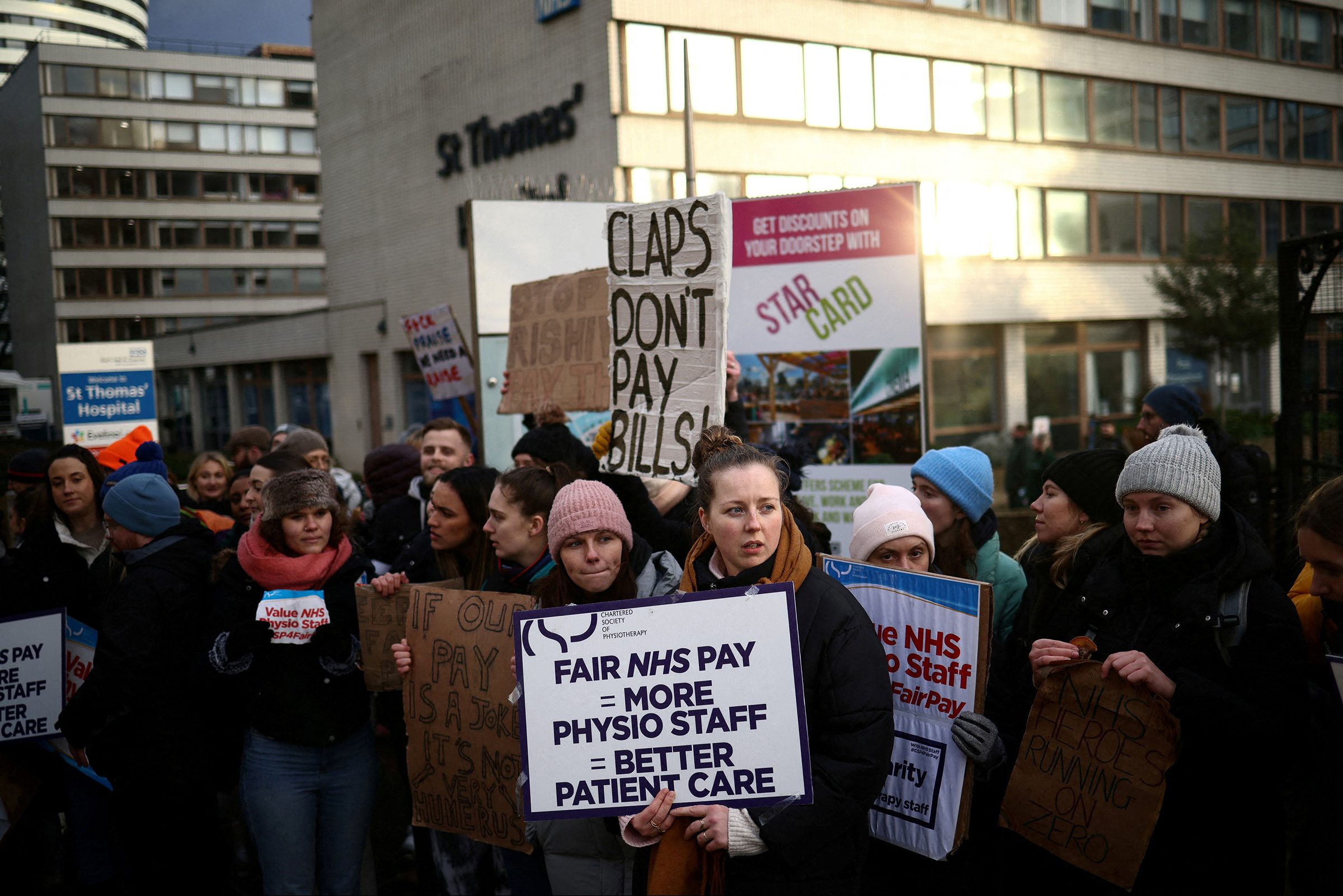
On certain issues, such as Brexit (which Starmer has since accepted after having previously campaigned for a second referendum to keep the U.K. in the E.U.) or the banning of trans people from single-sex spaces, there isn’t much daylight between them at all. That is especially true on security and foreign policy matters, including Ukraine. “There’s nothing that Putin wants more than to see division in the parliaments and governments of the allies,” Starmer says. “Under my leadership, there’s been no criticism of the government’s approach to Ukraine. We’ve stood alongside them.”
But Starmer is hoping that his “mission-driven” philosophy will distinguish Labour from the Tories. In addition to achieving the highest economic growth in the G-7, Labour’s five missions are to “make Britain a clean-energy superpower” by reaching zero-carbon energy by 2030, to “build an NHS fit for the future” through modernization, to “make Britain’s streets safer” by improving the country’s policing and judicial systems, and to “break down barriers to opportunity” by overhauling education and childcare. Though light on specifics, Starmer says that these missions will give voters a sense of Labour’s ambition. He also believes he can apply his experience leading large organizations like the CPS to solving the crisis of the cash-strapped health service. And just as he implemented policing reforms in Northern Ireland, Starmer says he can do the same with London’s scandal-ridden Metropolitan police.
The point, Starmer says, is to pivot away from what he likes to call “sticking plaster,” or Band-Aid politics, and toward structural, long-term change.
“We only win when we own the future, and we don’t win big very often,” Starmer says of Labour. That electoral record feels palpable judging by the series of vintage campaign posters hanging in the corridor outside his office. One, from the party’s 1964 victory, pictures its pipe-smoking leader Harold Wilson with the words “Labour will get things done.” Another takes aim at the Tories: “Under the Conservatives, you’ve never had it so good!”
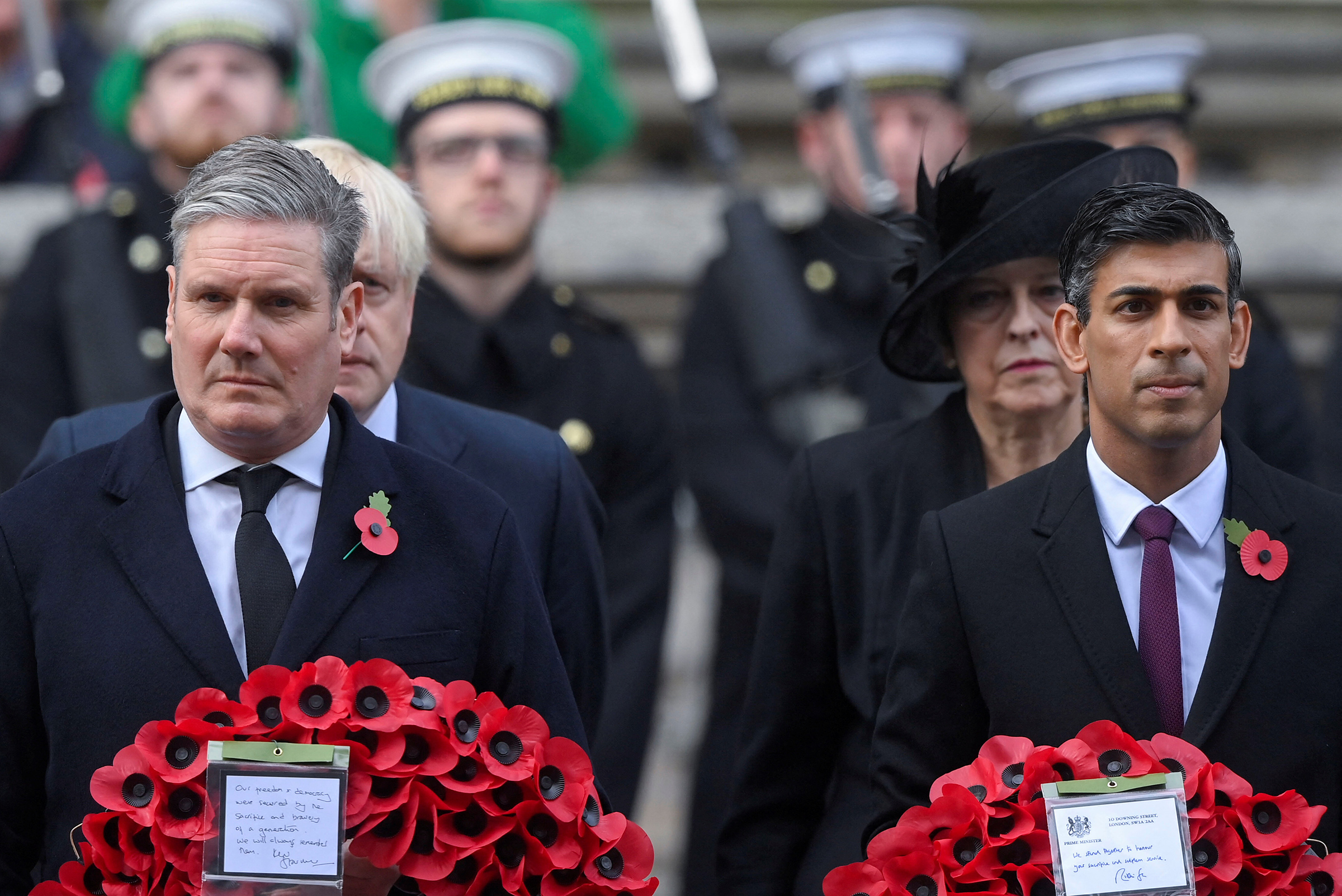
The next election could yet be a big win for Labour, but Starmer says he isn’t being complacent. He carries around with him a list of the battleground constituencies Labour needs to win power—a physical reminder of what stands between him and Downing Street. While much can change between now and the election—the economy, the polls, or even which Tory is Prime Minister—that list remains constant.
“We went from ‘You can’t win’ to ‘You can’t lose’ in the blink of an eye,” Starmer says, snapping his fingers. “If we go from where we landed in 2019 into government, that’ll be a historic achievement—and we need to be humble enough to know that requires us to earn every vote.”
More Must-Reads from TIME
- Why Biden Dropped Out
- Ukraine’s Plan to Survive Trump
- The Rise of a New Kind of Parenting Guru
- The Chaos and Commotion of the RNC in Photos
- Why We All Have a Stake in Twisters’ Success
- 8 Eating Habits That Actually Improve Your Sleep
- Welcome to the Noah Lyles Olympics
- Get Our Paris Olympics Newsletter in Your Inbox
Write to Yasmeen Serhan / London at yasmeen.serhan@time.com
